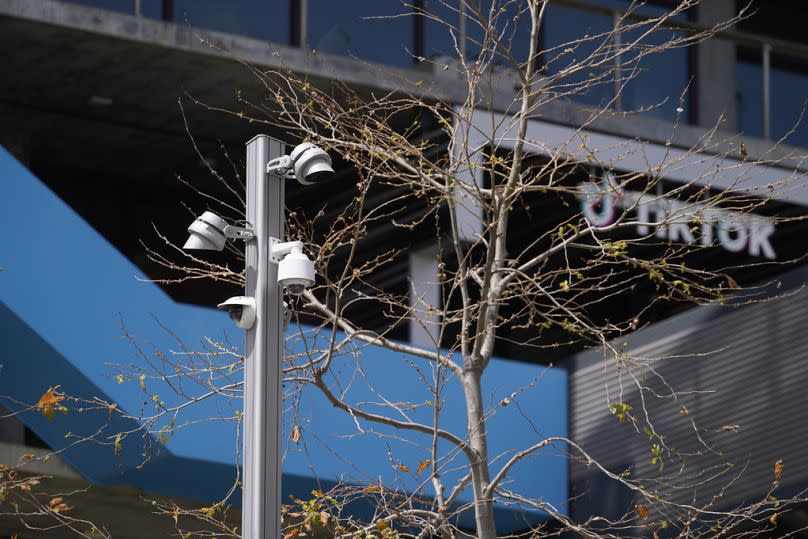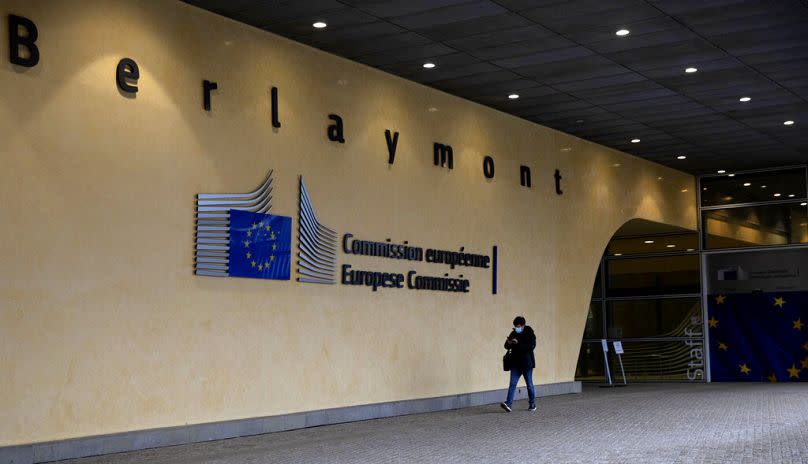With the EU’s key new technology laws, the Digital Services Act and the Digital Markets Act, in full force, Big Tech is working hard to destroy them.
As of today, the Digital Markets Act (DMA) is in full force, following its counterpart the Digital Services Act (DSA) on 17 February.
However, as the EU’s new technology laws take full effect, tech corporations such as Apple, Amazon, Meta and TikTok are already undermining them.
To refute these new regulations, several technology corporations have filed lawsuits against the European Commission and tried to weaken the rules with malicious compliance that protects their profits at the expense of their users.
Malicious compliance allows him to follow the letter of the law in a way that ignores or otherwise sabotages the intent of the law.
That’s why civil society organizations like EDRi are holding tech corporations accountable for their actions and supporting the European Commission to make full use of its supervisory authority.
The DSA regulates how social media platforms deal with potentially illegal online content uploaded by their users, without unduly restricting people’s freedom of expression.
The DMA has powerful obligations and prohibitions to prevent those tech firms from monopolizing key markets like smartphones, chat apps, app stores and more.
Tech corporations are not happy – they prefer profit over people
As the European Commission prepares to enforce compliance with the new rules at Big Tech, Amazon, Meta, TikTok and Apple are emptying their pockets in an attempt to prevent that task.
In July, Amazon was one of the first to sue the European Commission on the DSA. The half-trillion dollar company, which has hundreds of millions of European users every month, argues in court that it could not be a target of the DSA’s key obligations because they were conveniently designed for companies whose main business is online advertising. -their business model. , not for Amazon.
Of course, the DSA’s obligations also apply to very large online platforms such as Amazon, and they expressly extend to e-commerce sites, regardless of how they make their money.

Shortly after, Meta and TikTok announced that they were taking the European Commission to court over the annual supervisory fee they must pay under the DSA.
This obligation is one of many digital rights organizations such as EDRi and other civil society groups won during the drafting of the law. It is a matter of fairness that Big Tech pays the costs that society has to invest in mitigating the threats created by these companies, approximately €45 million per year.
Based on European Commission calculations, Meta ($47 billion in annual profits) should pay €11m and TikTok owner ByteDance ($2bn in annual profits) is expected to pay €3.9m.
Let’s do the math: Both amounts are well below the maximum limit of 0.05% of their annual profit. Although these amounts are just pocket money for the technology corporations, they are a fair and necessary financial compensation that enables the public authorities to carry out enforcement work.
Apple is not without fault, either
On the other hand, Apple is trying to squash the new regulations not in court, but through malicious compliance. One of the main goals of the DMA is to open up Apple’s tightly controlled operating system and app store and allow users to freely decide which apps they want to install on and from their iPhones.
Instead of complying with this new requirement, however, Apple has announced a sneaky plan that would technically allow competitors to provide alternative apps and web browsers on iPhones and iPads, but would in no way reduce the company’s gatekeeping power over people’s devices.


Instead of enabling true software freedom for its users, Apple continues to police every app people install on their phones and extort a levy from their developers, who allegedly keep users safe.
The developers called Apple a “mafia” and described its attempt at malicious DMA compliance as “offensive,” “extortion,” and “extremely punitive.” The European Commission should push back hard against this attempt to circumvent the DMA’s objective of reducing gatekeeping power.
To be sure, legal access is open to all. However, it seems that some of these lawsuits initiated by technology corporations have no merit other than delaying the enforcement work of the European Commission, reducing the potential of the DSAs and the DMA to reduce the market power of Big Tech and destroying the positive image of both laws in the public eye.
Will the European Commission hold technology corporations accountable?
Despite the legal threats from the industry, the European Commission’s enforcement teams are off to a promising start.
Last year, the team responsible for the DMA held a series of well-organized public workshops with experts and regulated companies to discuss how best to implement some of the more difficult rules of the law.
Unlike similar workshops in the past, these were not dominated by industry lobbyists but hosted a number of important voices from civil society, including from the free software and digital rights communities.


More importantly, when the DSA came into force, the European Commission acted quite quickly and opened formal investigations into X (formerly known as Twitter) and TikTok for possible non-compliance with their obligations under DSA respectively.
Among other things, the European Commission investigates whether the two platforms have failed to comply with their obligation to provide effective content moderation, improve the transparency of their surveillance advertising system, and stop the use of addictive design and dark patterns.
Civil society’s fight for accountability and justice
Last week, EDRi along with other expert NGOs provided evidence to the European Commission suggesting that Microsoft’s LinkedIn networking platform may be in breach of the DSA’s new ban on profiling people using sensitive personal data to targeting ads.
The fact that there is such a prohibition in the DSA is a significant milestone, recognizing the limits of consent in the context of the surveillance advertising industry.
When the DSA and DMA were passed in 2022, major high-tech industry associations hailed the new laws as significant achievements. It’s time for Big Tech corporations to stop pouting and live up to their responsibility.
The European Commission must stand firm against their efforts to delay, undermine and destroy Europe’s key digital laws, and the digital rights community stands ready to help hold them accountable.
Jan Penfrat is Senior Policy Advisor at the European Network for Digital Rights (EDRi).
At Euronews, we believe that every opinion matters. Contact us at view@euronews.com to send pitches or submissions and be part of the conversation.